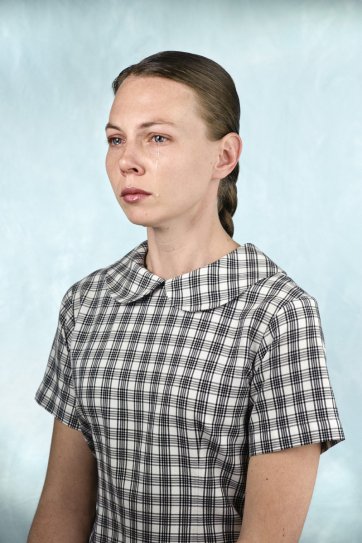The inaugural winner of the $10,000 iD Digital Portraiture Award was announced this morning at the National Portrait Gallery.
The artist judged to have made the most outstanding screen-based digital portrait was Laura Moore, from Picton NSW, with her stunning digital portrait, Animation 1 from the series Hereinbefore. Laura received a $10,000 cash bursary from the Gallery, made possible through the generous support of the Macquarie Group Foundation. The winner was announced by the Head of the Foundation, Lisa George. The National Portrait Gallery and the Macquarie Group Foundation warmly congratulate Ms Moore. The other finalists were Aaron James McGarry, Nina Mulhall, Clare Thackway and Bridget Walker, whose work, in addition to that of the winner, forms the exhibition iD2012.
Laura Moore will have the opportunity to undertake a residency at the Perth Institute of Contemporary Arts (PICA), one of Australia’s leading centres for the development and presentation of contemporary art. PICA seeks to promote, support and showcase contemporary arts and to stimulate critical discussion around the arts and broader cultural issues.
National Portrait Gallery Senior Curator, Dr Christopher Chapman, said: ‘The iD Digital Portraiture Award reflects the Gallery’s commitment to emerging artists between the ages of 18 and 30 who are interested in contemporary technology, providing support and exposure when it is most needed’. Of the winner, Dr Chapman said ‘Laura Moore’s digital portrait is a self portrait in the form of a traditional school photograph, brought to life to surprising effect’.
In addition to Dr Chapman, the 2012 judges were Amy Barrett-Lennard, PICA Director and Felicity Fenner, Chief Curator, National Institute for Experimental Arts and Acting Director, COFA Galleries at the University of NSW.
‘The five digital portraits selected for the exhibition explore portraiture from unique perspectives. They are stylistically diverse and evoke a range of emotional states. They are dramatic, affecting, surprising and humorous’, Dr Chapman said.















